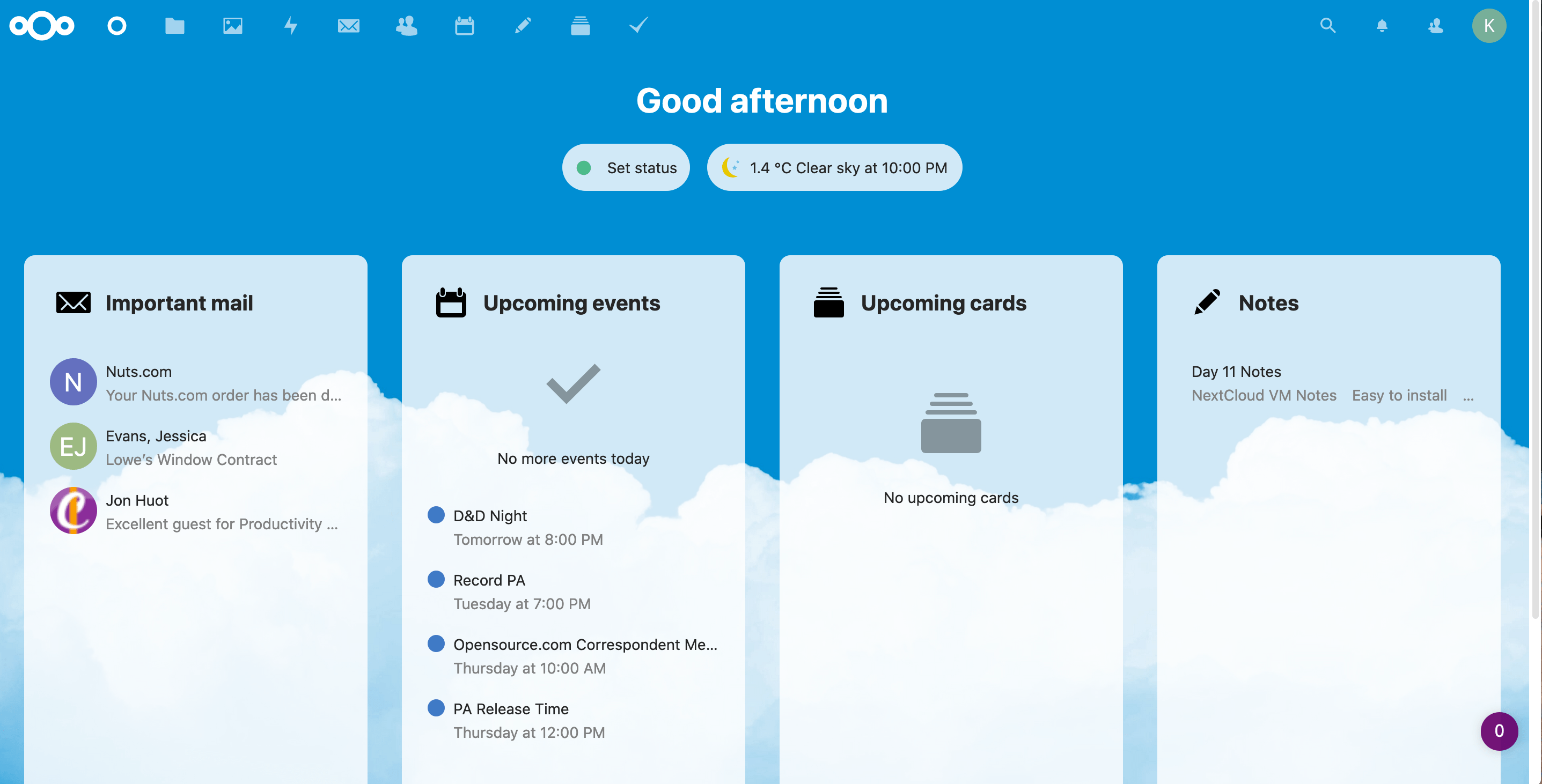In today's digital landscape, the integration of Information and Communication Technologies (ICTs) has revolutionized the way we manage data and collaborate online. One of the standout solutions in this realm is Nextcloud, an open-source platform that facilitates secure file sharing and collaboration. This article will delve deep into ICTs and Nextcloud, exploring their functionalities, benefits, and relevance in the modern workplace.
As businesses and individuals increasingly rely on digital solutions, understanding the impact and capabilities of ICTs is crucial. Nextcloud stands out as a versatile tool that not only enhances productivity but also prioritizes data privacy and security. This article aims to provide a comprehensive overview of Nextcloud, its features, and how it fits into the broader context of ICTs.
Whether you are a business owner looking to streamline operations or an individual seeking a secure platform for personal data management, this guide will equip you with the knowledge needed to make informed decisions about using Nextcloud and ICTs effectively.
Table of Contents
- 1. What are ICTs?
- 2. The Evolution of Nextcloud
- 3. Key Features of Nextcloud
- 4. Benefits of Using Nextcloud
- 5. Nextcloud vs. Other Cloud Solutions
- 6. Implementing Nextcloud in Your Organization
- 7. Security and Privacy in Nextcloud
- 8. Future of ICTs and Nextcloud
1. What are ICTs?
Information and Communication Technologies (ICTs) encompass a wide range of technologies that enable the access, processing, and communication of information. This includes everything from computers and the internet to telecommunications and software applications. The significance of ICTs in today's society cannot be overstated, as they play a crucial role in virtually every aspect of life, including education, healthcare, business, and entertainment.
The Importance of ICTs in Various Sectors
- Education: Enhances learning experiences through e-learning platforms.
- Healthcare: Improves patient care via telemedicine and electronic health records.
- Business: Streamlines operations and enhances communication.
- Entertainment: Provides access to a vast array of content and services.
2. The Evolution of Nextcloud
Nextcloud was founded in 2016 by Frank Karlitschek as a fork of ownCloud, aiming to provide a more robust and community-driven solution for file sharing and collaboration. Since its inception, Nextcloud has rapidly gained popularity due to its open-source nature and the emphasis on user privacy and data sovereignty.
Nextcloud allows users to host their own cloud storage solution, giving them complete control over their data. This is particularly important in an era where data breaches and privacy concerns are prevalent.
3. Key Features of Nextcloud
Nextcloud offers a plethora of features that cater to both individual users and organizations. Some of the key features include:
- File Sharing and Synchronization: Seamlessly share files across devices and with other users.
- Collaboration Tools: Integrated tools for collaboration, including document editing and video conferencing.
- Data Privacy and Security: End-to-end encryption and user-controlled access permissions.
- Integration with Third-party Applications: Compatibility with a wide range of applications for enhanced functionality.
4. Benefits of Using Nextcloud
Choosing Nextcloud as your cloud solution comes with several benefits:
- Cost-Effective: Being open-source, it reduces costs associated with licensing fees.
- Customizable: Users can modify and extend the platform based on their needs.
- Data Control: Users retain complete control over their data, which is crucial for compliance with data protection regulations.
- Community Support: A strong community of developers and users provides ongoing support and improvements.
5. Nextcloud vs. Other Cloud Solutions
When comparing Nextcloud to other cloud storage solutions like Google Drive or Dropbox, several distinctions emerge:
- Data Ownership: Nextcloud allows users to host their own data, whereas others store data on their servers.
- Customization: Nextcloud is highly customizable, allowing for tailored solutions.
- Privacy: Nextcloud prioritizes user privacy, while other services may monetize user data.
6. Implementing Nextcloud in Your Organization
Implementing Nextcloud in your organization requires careful planning and execution. Here are the steps to get started:
- Assess Your Needs: Determine what features are essential for your organization.
- Set Up the Server: Choose between self-hosting or using a Nextcloud provider.
- Train Your Team: Provide training to ensure smooth adoption.
- Monitor and Optimize: Regularly assess usage and make necessary adjustments.
7. Security and Privacy in Nextcloud
Security and privacy are paramount in any cloud solution. Nextcloud addresses these concerns through:
- End-to-End Encryption: Protects data both at rest and in transit.
- Two-Factor Authentication: Adds an extra layer of security for user accounts.
- Access Control: Allows users to set permissions on who can access data.
8. Future of ICTs and Nextcloud
The future of ICTs is bright, with advancements in artificial intelligence, machine learning, and big data analytics. Nextcloud is poised to remain a significant player in this landscape, continually evolving to meet the needs of users and organizations alike.
As the demand for secure and private data management solutions grows, Nextcloud's commitment to user empowerment and data sovereignty will ensure its relevance in the years to come.
Conclusion
In conclusion, understanding ICTs and the capabilities of Nextcloud is essential for anyone looking to enhance their data management and collaboration efforts. With its robust features, commitment to privacy, and community-driven approach, Nextcloud stands out as an ideal solution for individuals and organizations alike. We invite you to explore Nextcloud further and consider how it can benefit your digital strategy.
Feel free to leave your comments below, share this article with others, or check out our other articles for more insights into ICTs and cloud solutions.
Closing Remarks
Thank you for reading! We hope this article has provided valuable insights into ICTs and Nextcloud. We look forward to welcoming you back for more informative content in the future.




